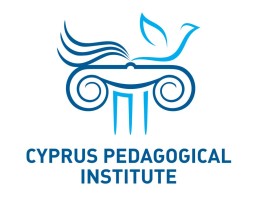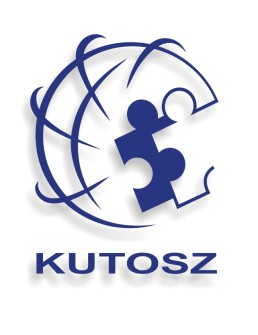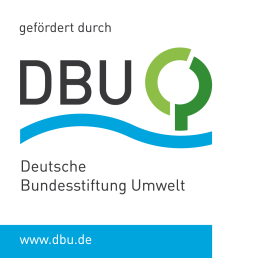Digital Education for Sustainable Development across Europe
This project strengthens awareness for a more sustainable and fairer world: We are creating a European learning platform for elementary school in Cyprus, Germany, Hungary and Norway, aimed at pupils aged 9 to 11 that provides learning and teaching materials on the United Nations’ 17 Sustainable Development Goals (short: SDGs).
Teachers are encouraged to increasingly focus their lessons on holistic and transformative education in the sense of Education for Sustainable Development (short: ESD). Building on this, they are empowered to use different kinds of knowledge to enable pupils to reflect on and shape their thoughts and actions in the context of sustainable development.
The following results are to be achieved in the course of the project:
- Establishment of a digital learning platform – targeting the needs of primary school education in the partner countries Cyprus, Germany, Hungary and Norway
- Development and production of 19 learning environments in English, German, Greek, Hungarian and Norwegian on the respective 17 SDGs, Johan Rockström’s Wedding Cake model and dilemmas associated with the SDGs
- Development of one learning module for each of the 19 learning worlds as an introduction for teachers
- Development of a learning module for each of the 19 learning worlds for pupils, including a handout for teachers and accompanying educational materials
- Implementation of regular online training courses for teachers on ESD in elementary school
- Roll-out and accessibility of all results and national dissemination of digital learning and teaching materials
- Development of a framework to support interested parties in the process of implementing ESD in elementary school in other countries and languages
The alignment of education in elementary school towards ESD in the four partner countries shall be benefited and pupils empowered to take action to shape a sustainable future. In this, teachers play a key role, but they often lack the capacity to acquire the necessary specialist knowledge or the confidence to integrate this highly complex topic into their lessons. By involving teachers and pupils in the development process, their needs are taken into account. Hence, the educational material on the SDGs addresses the national education strategy and motivates joint action and participatory change for an improvement in the quality of life. In this way, the project realizes its participatory concept right from the start.
In addition to the development of directly usable, free digital learning and teaching materials, a framework is made publicly accessible. This also enables and supports target groups outside the project sphere to carry out the process of curriculum analysis with regard to the integration of ESD themselves and subsequently develop learning and teaching materials adapted to national needs.
Working together on this project:
Lead applicant
Onilo.de is a learning portal with contemporary, digital learning content, in particular to promote language and reading skills in children and to impart knowledge at elementary school and other public educational institutions. In over 10 years in the field of digital education, a profound expertise has been built up. With the help of an award-winning pedagogical concept, valuable, animated educational videos are created, also known as board stories. The learning experience is complemented by differentiated accompanying materials created by educators for digital boards, PCs, smartphones and tablets as well as for analog worksheets.
Cooperation partner
Blue Carrot Media Production Agency
Blue Carrot is a renowned video production agency in Ukraine specializing in educational content creation and video production for e-learning and marketing purposes. Since its founding in 2014, Blue Carrot has consistently excelled in content production and carved a niche for itself in the global market. The company’s notable clients include the United Nations, the University of South California, Charité Medical University and over 300 others.
Cooperation partner
Cyprus Pedagogical Institute (CPI)
CPI is one department of the Ministry of Education and Culture whose aim is to meet the increasing needs of teachers at all levels of education. The main activities of the institute are professional teacher training at all levels of education, educational research, curriculum development and the promotion of new areas of education such as environmental education, ESD, multicultural education and active citizenship.
Cooperation partner
Hungarian Research Teachers’ Association (HRTA)
HRTA is an independent civil organization including teachers who are committed to improving the educational environment. The work of the association is dedicated to the areas of supporting particularly gifted pupils and students as well as the creation of innovative educational methods and materials. Cross-educational topics such as sustainability and inclusion are important areas of cooperation for HRTA members.
Cooperation partner
Inland Norway University of Applied Sciences (INN University)
Inland Norway University of Applied Sciences was founded in 2017 through the merger of Hedmark University and Lillehammer University College. Their research is closely linked to the educational offer. In this way, the degree programs become research-oriented as the institution brings in new knowledge in important areas of society.
Funded by
Erasmus+ – EU programme for education, training, youth and sport | Key Action: Cooperation Partnerships
The main objective of cooperation partnerships is to enable organizations to increase the quality and relevance of their activities, develop and strengthen their partner networks and increase their capacity to cooperate at a transnational level. This also includes exploring new ideas, developing new practices and methods, and further developing and internationalizing their own activities.
Funded by
Deutsche Bundesstiftung Umwelt – DBU
DBU is one of the largest foundations in Europe. It promotes innovative, exemplary projects for environmental protection as well as innovative, model and solution-oriented projects for the protection of the environment, with special consideration of small and medium-sized enterprises, provided that they are in line with the foundation’s mission and mission statement.









